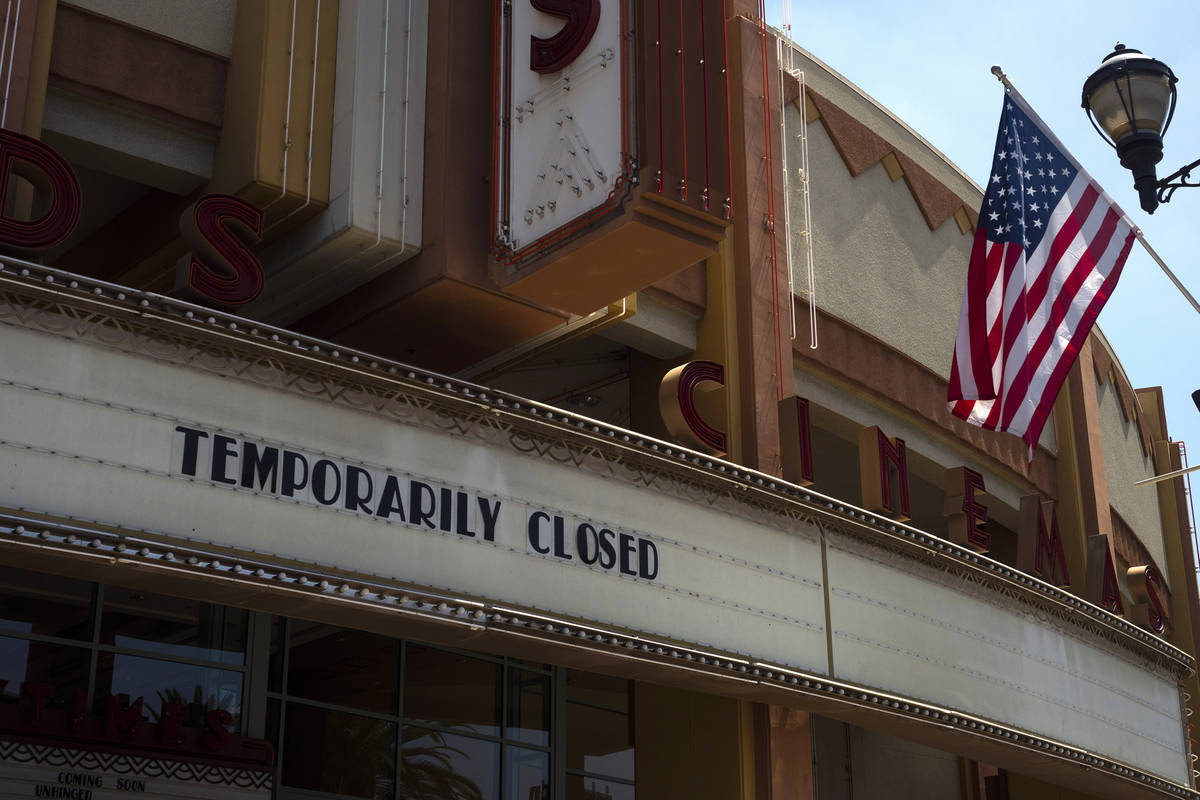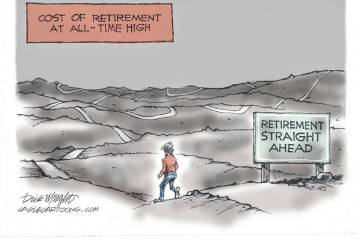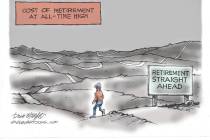MEGAN McARDLE: Be prepared to say goodbye to movie theaters
No one warned me that when I married a movie critic, I’d almost never see a movie in the theater again. My spouse, you see, would have already attended the screening, which would take place at 10 in the morning, or forbid guests, or happen an hour away in the suburbs.
The other thing no one warned me about, understandably, is that during a pandemic, I would be watching my beloved cinephile endure first withdrawal and then intense grief at the sudden cessation of one of his most-loved activities.
So I’ve paid close attention as studios groped for a pandemic strategy. And now, as studio after studio announces that they’re pushing major new releases back, some well into 2021, it’s becoming increasingly likely that Americans won’t see any more blockbuster movies, anywhere, until most of the population has been vaccinated.
Early on, two other outcomes seemed possible: that COVID-19 might accelerate the already-underway shift toward video-on-demand, and that studio films might release on schedule, to our televisions, while most theaters closed for good. Disney’s decision to release “Mulan” as a $30 add-on purchase for subscribers to its new Disney Plus streaming service looked like it might be the first domino that would topple all the other blockbusters into a straight-to-video world.
But it also seemed possible that, with bars and music venues closed, COVID-19 might bring us back to the future to an old-fashioned kind of movie-watching, where movies opened to smaller audiences, then played in theaters longer, earning back their investment over weeks and months. The release of Christopher Nolan’s time-bending thriller “Tenet” was a bet on that second proposition.
Now that studios are announcing yet more delays for major franchise films such as “Black Widow” and “Wonder Woman 1984,” it looks as if both of these theories were wrong. Instead, studios are going to hit pause and hope that when this cruel pandemic is over they can go back to business as usual.
That was probably their only remaining option. “Tenet” deeply underperformed in the United States, and though it did better in the foreign countries where it played, it looks increasingly unlikely to hit the minimum $400 million in global box office it would need to earn back its investment. With the U.S. epidemic still grinding on, who wants to gamble a $200 million-plus investment on having better luck than Christopher Nolan?
As for video-on-demand, while Disney has been cagey with numbers, it seems reasonable to infer that if “Mulan” had made anything approaching traditional blockbuster profits, it would be pushing other movies out on streaming, rather than moving “Black Widow” back to May 2021 and the rest of the Marvel comics slate sometime after.
However, we should assume that whatever the studios write on the calendar, the actual release date of any major motion picture is not a day, but a hope: “When the pandemic is over.” That’s the only point at which they can be sure of making their money back. And given resurgent outbreaks in already hard-hit cities and communities, it still looks as if “over” will probably come through mass vaccination, not natural herd immunity.
Which leaves us with two open questions: First, how long will it take to get enough people vaccinated that we can once again blithely sit down in the dark with a bunch of strangers who are probably pulling down their masks to munch popcorn? In the United States, at least, the numbers keep getting more discouraging. Fewer than 40 percent of Americans say they’ll get a vaccine when it’s available, a decline that seems to be driven by partisan fear as much as medical uncertainty.
The longer it takes, the more urgent becomes the second question: Will theaters still be around when viewers are ready to go back?
Theater chains are already facing a debt crisis that will become dire if they have to go another year without any significant revenue, as are the shopping malls where many of those theaters are housed.
The modern movie business has been tuned to operate at vast scale, opening mega-budget blockbusters on thousands of screens at once. It’s unclear what happens if a significant portion of that capacity simply vanishes in the course of a year or two.
Yet even these financial problems are probably secondary to the behavioral one: If it takes 18 months, or even longer, for enough Americans to get vaccinated, could Americans simply lose the habit of going to the movies, learning to get their video entertainment from streaming services and their socializing from the backyard?
Any one of these changes, financial or behavioral, would utterly upend the movie industry as we know it. But put the two together, and we have to at least consider the possibility that many Americans, like me, will most likely never see a movie in the theater again.
Follow Megan McArdle on Twitter, @asymmetricinfo.






















